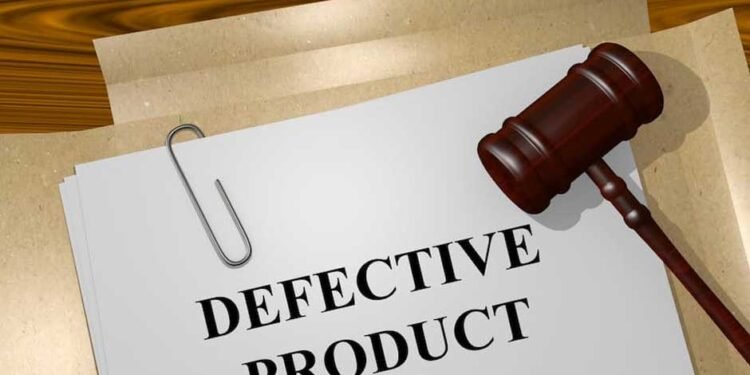When you buy a product, you expect it to work and not explode, catch fire, or cause injury. But every year, thousands of people are hurt by everything from faulty electronics and unsafe toys to defective car parts and dangerous medications. When that happens, the damage can go beyond physical injuries and can impact your ability to work, cause emotional distress, and harm your long-term health.
The U.S. Consumer Product Safety Commission (CPSC) estimates that around 29.5 million injuries and 22,000 deaths are caused by defective products each year. The injuries range from mild to severe, and the economic loss is estimated at $500 billion.
If you’ve been injured by a defective product, filing a lawsuit isn’t vengeful – it’s usually the only way to hold a manufacturer accountable, recover compensation for your medical bills, and prevent the same thing from happening to someone else.
If you’re on the fence, here’s why you should contact a lawyer immediately and pursue a claim.
You can’t win a fair settlement on your own
Make no mistake – insurance companies are not on your side when they offer you a settlement after learning of your injury. They’re not trying to help you. They’re trying to get you to take a low offer to make you go away.
A lawyer will protect your rights against shady insurance companies. They’ll fight for what your case is worth, whether your case settles out of court or goes to trial. When your attorney works on contingency, it won’t cost you anything up front to file. You won’t pay anything unless and until you win.
In addition to negotiating on your behalf, a lawyer can potentially get you higher compensation than you’d get through a direct insurance offer. And if you’re eligible for punitive damages, you could be awarded a significant additional chunk of cash.
You deserve to be compensated for your injury
If you were injured by a defective product, the law says you shouldn’t have to pay for someone else’s negligence. That means you can pursue compensation to cover your medical bills, lost income, and even pain and suffering in some cases.
Medical bills add up fast, whether it’s a surgery, physical therapy, or long-term care. Costs can spiral into tens or even hundreds of thousands of dollars. If you miss work because you’re not capable of performing your duties, you’re entitled to recover lost wages and lost future earning potential.
When it comes to pain and emotional distress, these are valid damages. They impact your quality of life and should be pursued to the fullest.
Manufacturers have a legal responsibility to keep consumers safe
Manufacturers have what’s called “strict liability,” which means you don’t need to prove negligence – just that the product was defective and harmed you.
Defective products aren’t just unfortunate accidents. They’re often traced back to gross negligence on the part of the manufacturer, often because they failed to conduct tests, ignored poor test results, or didn’t issue a recall early enough.
Design defects put anyone at risk, no matter how careful they are. A single bad batch of parts, poor quality control, or contamination can turn an otherwise safe product into a major hazard. Unfortunately, despite being required to warn consumers of any known risks, companies often have missing or vague warnings.
A lawsuit will hold parties accountable
Some companies won’t fix a defective product unless they’re forced into it through a lawsuit with a hefty judgment against them. For instance, product recalls are often initiated by a lawsuit. They’re hardly voluntary. In many cases, an injured victim has to sue the company before they’ll fix the issue. For example, consumers had to file multiple lawsuits over the exploding Takata airbags before automakers recalled 67 million vehicles.
Legal action can also reveal that a company knew about the defect and ignored it. If they’re a repeat offender, winning a lawsuit can put them out of business.
Justice is worth pursuing
If you’re hesitant to sue because you don’t want to seem greedy, don’t worry. Seeking justice through the courts isn’t selfish. It’s actually the most responsible thing you can do. Letting companies off the hook encourages more negligence. Legal action forces them to change their ways. Holding someone accountable can also be an important step in your emotional healing journey and provide you with a sense of closure.
Don’t let them off the hook
Companies are responsible for the products they put out into the world, and when they’re dangerous, they should be held accountable. Don’t hesitate to pursue an injury lawsuit. If you win, you’ll get compensation, peace, and closure.












